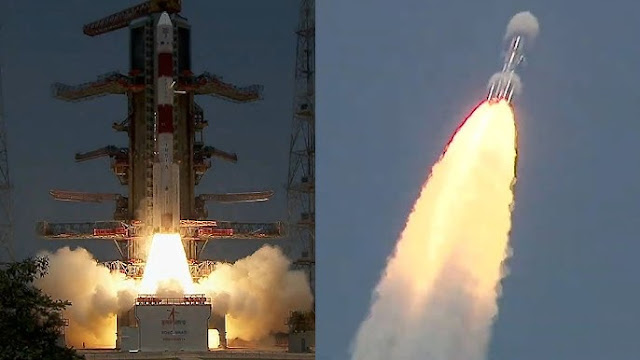To finish integrating the PSLV, the European team, which is presently in India, successfully wrapped the spacecraft in the payload fairing.
This project represents an important partnership between ESA and Isro.The goal of the mission is to investigate the Sun's corona.
The distance between these satellites will be roughly 150 meters.
The ambitious two-spacecraft mission to study the Sun and perform formation flying in space is about to be launched by the Indian Space Research Organization (Isro).
On December 4, 2024, at 4:08 PM IST, the European Space Agency's (ESA) Proba-3 mission will be launched from Sriharikota, India, using the Polar Satellite Launch Vehicle-XL (PSLV-XL).
To finish integrating the PSLV, the European team, which is presently in India, successfully wrapped the spacecraft in the payload fairing.A dress rehearsal for the launch was held after the integration.
With the goal of examining the Sun's corona, the outermost layer of the solar atmosphere, which is essential for comprehending solar dynamics and space weather phenomena, this mission represents an important partnership between Isro and ESA.
Two satellites will work together to produce artificial solar eclipses as part of Proba-3, the first precision formation flying mission in history.
With their very elliptical orbits and 150-meter separation, these satellites will be able to obscure sunlight and examine the corona in previously unheard-of detail.
The duration of normal solar observations is greatly increased in comparison to natural eclipses because to this configuration, which allows for continuous observations for up to six hours.
This intricate mission will be made easier by the PSLV-XL variant, which is renowned for its increased payload capacity because of its extra strap-on boosters. The Occulter and Coronagraph satellites, which weigh a combined 550 kg, are intended to cooperate in order to obtain fine-grained photographs of the corona.
The Coronagraph will use this shadow to study solar phenomena that are otherwise hard to view, while the Occulter will block off the Sun's bright light.
This launch highlights India's expanding position in international space exploration in addition to showcasing Isro's capability as a dependable launch partner.








0 Comments